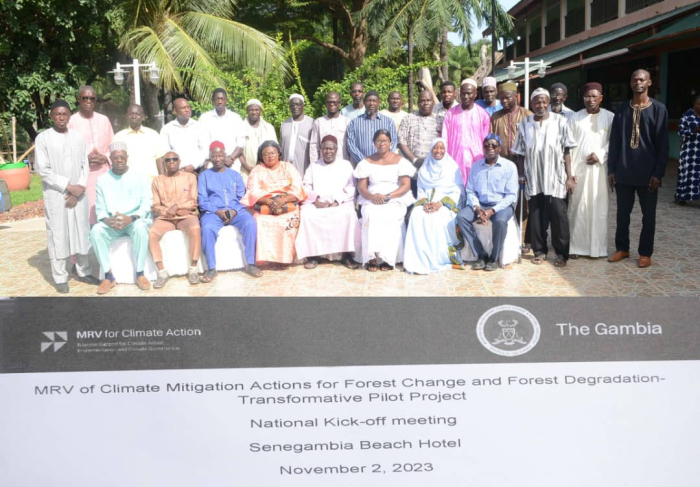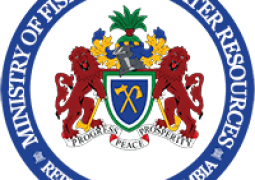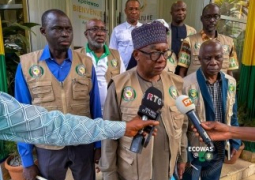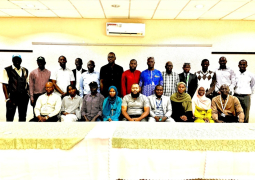
Senior government officials, and other environmental stakeholders including project coordinators of community-based organisations and representatives of the Environment, Energy and Finance ministries met on 2 November this year at the Senegambia Beach Hotel to chart a transformative Pilot project on monitoring forest change and degradation for climate actions.
The meeting delved into the issues of forest and climate change, as well as aspects of MRV, to develop mitigation actions to reduce forest degradation and enhance a green economy for The Gambia.
“MRV for climate action on monitoring forest and degradation will create a substantial difference in our national and regional actions against the impacts of Climate Change,” national focal person for MRV Jainaba Fatty said.
“The national kick-off meeting is organised to discuss and nurture the Transformative Pilot or project on monitoring forest change and degradation for effective climate actions which shall critically complement the attainment of our respective national climate action priorities as conceived during the participatory roundtable meetings and the regional technical meeting held in July 2023 in The Gambia.”
In his keynote address, the Deputy Permanent Secretary at the Ministry of Environment Climate Change and Natural Resource, Babucarr Zaidi Jallow, said The Gambia is a beneficiary of the West Africa MRV programme that started in 2020 with 15 West African countries. “In 2021 four countries made it to the second phase, namely Ghana, Liberia, Togo and The Gambia,” he said.
According to DPS Jallow, the MRV for Climate Action Programme supports partner countries' national development priorities and capacities to plan, finance, and achieve GHG emission reductions and implement low-carbon solutions to local development challenges.
“To achieve these goals, the Gambia has prepared a National Evergreen Road map earlier this year that outlines approaches to accelerate climate actions, strengthen and enhance multi-level climate governance, develop a more effective and efficient MRV system, and mobilize climate finance and investment,” he said.
He added that the Transformative Pilot Project for MRV of mitigation actions on monitoring forest change and degradation “is one of the three Transformative Pilot Projects the Gambia is currently implementing”.
MRV Forest Component Project Manager Almami Dampha outlined the concept of MRV on forest change and degradation, saying that while the trends of deforestation and degradation are seemingly becoming permanent, “it does not have to be that way”.
He proffered a solution: “We can turn degraded forests into thriving ecosystems and restore lost ones through reforestation and afforestation.”
He said to effectively mitigate climate change, it is essential to have a clear picture of greenhouse gas (GHG) emissions and their sources, and regularly monitor mitigation strategies and their impacts.
“Deforestation is the purposeful clearing of forested land for other uses, such as farming, settlements, and infrastructure,” Mr Dampha stated, adding: “The increasing demand for fuelwood and charcoal as the main sources of domestic energy is a major driver of deforestation in the country.”
Read Other Articles In Headlines

‘Above normal rainfall may lead to crops damage, population displacement’
Jun 4, 2020, 10:44 AM



